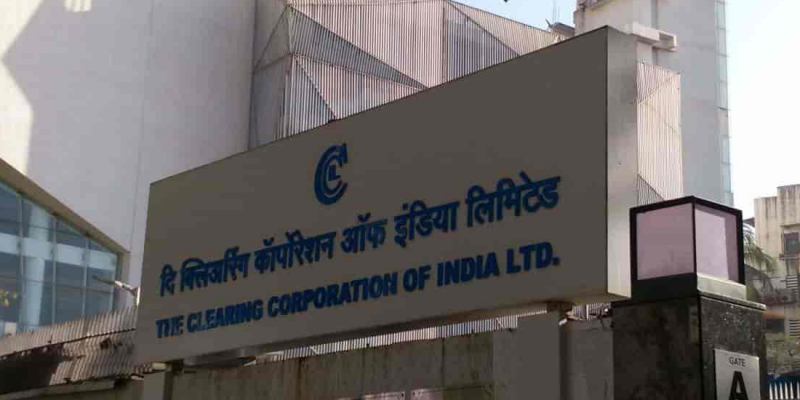Description

Copyright infringement not intended
Picture Courtesy: www.regulationasia.com
Context: The Reserve Bank of India (RBI) and the Bank of England (BoE) signed a Memorandum of Understanding (MoU) focused on cooperation and information exchange concerning the Clearing Corporation of India Limited (CCIL).
Details
- The Memorandum of Understanding (MoU) signed between the Reserve Bank of India (RBI) and the Bank of England (BoE) signifies a resolution to the deadlock between Indian and European regulators over supervisory authority on Indian clearing houses, specifically the Clearing Corporation of India Limited (CCIL).
Background
- Clearing Corporations are crucial in financial markets, providing essential functions in clearing and settling various types of transactions, including those in money markets, government securities (G-Secs), foreign exchange, and derivatives.
- The European Securities and Markets Authority (ESMA) de-recognized six Indian clearing houses earlier due to non-compliance with European Market Infrastructure Regulation (EMIR) norms. These affected entities like CCIL and others operating in India.
The MoU between RBI and BoE
- Cooperation Framework: The signed Memorandum of Understanding (MoU) establishes a framework for cooperation and information sharing between RBI and BoE specifically concerning CCIL.
- Regulatory Reliance: The MoU signifies that the BoE will rely on the regulatory and supervisory activities conducted by the RBI regarding CCIL. This is done while ensuring the stability of the UK's financial system.
- Cross-Border Cooperation: It emphasizes the importance of cross-border cooperation for facilitating international clearing activities and shows the BoE's commitment to respecting and deferring to the regulatory regimes of other countries.
Key Aspects and Implications
- Enhanced Cooperation: The MoU reaffirms the commitment of both authorities to enhance cooperation in accordance with their respective laws and regulations.
- UK Bank Transactions: The agreement allows the BoE to evaluate CCIL's application for recognition as a third-country Central Counterparty (CCP). This recognition is vital for UK-based banks to conduct transactions through CCIL.

Clearing Corporation of India Limited (CCIL)
- The Clearing Corporation of India Limited (CCIL) is a financial institution that provides clearing and settlement services for transactions in the Indian money market, government securities market, foreign exchange market and derivative market.
- CCIL was established in 2001 as a private limited company to improve the efficiency and safety of the financial system.
Functions of CCIL
- CCIL guarantees clearing and settlement functions for transactions in money markets, government securities (G-Secs), foreign exchange, and derivatives.
- It sits between buyers and sellers, ensuring both parties fulfil their obligations, thereby reducing counterparty risk.
Segments Covered by CCIL
- CCIL handles interbank call money, repo transactions, and other money market instruments.
- It manages clearing and settlement for government bonds in both primary and secondary markets.
- CCIL is involved in clearing spot, forward, and options contracts in major currencies in the foreign exchange market.
- It handles interest rate swaps, currency swaps, and other derivatives traded on Indian exchanges.
Key Facts about CCIL
- Promoted by leading Indian financial institutions, including RBI, IDBI Bank, ICICI Bank, LIC, Bank of Baroda, and HDFC Bank.
- Subsidiaries include Clearcorp Dealing Systems (India) Limited and Legal Entity Identifier India Limited.
- CCIL has a dominant market share, handling over 99% of all G-Sec trades in India.
Role and Contributions of CCIL
- CCIL plays a crucial role in reducing systemic risk by guaranteeing settlement and preventing defaults from cascading through the financial system.
- It improves market liquidity by reducing counterparty risk, encouraging more participants to enter the market.
- CCIL promotes efficiency by automating clearing and settlement processes, saving time and costs for market participants.
Challenges Faced by CCIL
- Adapting to evolving markets, including new instruments and trading technologies.
- Maintaining international recognition and compliance with changing standards.
- Addressing cybersecurity threats to protect against potential cyberattacks.
.jpg)
Conclusion
- Despite challenges, CCIL remains a vital pillar of the Indian financial system, contributing significantly to market stability and growth through its role in ensuring clearing and settlement.
Must Read Articles:
Limited Purpose Clearing Corporation: https://www.iasgyan.in/daily-current-affairs/limited-purpose-clearing-corporation
|
PRACTICE QUESTION
Q. What are the key responsibilities and functions of the Reserve Bank of India in maintaining financial stability and fostering economic development, and how does it exercise its regulatory authority over the Indian financial system?
|











